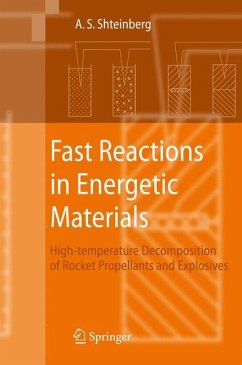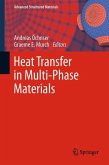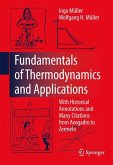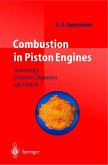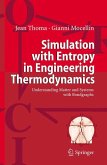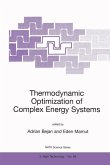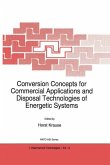Under the title Energetic Materials, the author considers nearly all important homogeneous and heterogeneous systems such as solid and liquid explosives, pyrotechnic substances, mixtures used in combustion synthesis and all components of present rocket fuels. Since the combustion and explosion of these materials are greatly influenced by the kinetics of their chemical reactions, a quantitative study of those kinetics is of great interest for both theoretical and practical applications.
Kinetic studies of the thermal decomposition of energetic materials have been very successful so far for both high and low temperatures, but only for gaseous systems. For condensed materials these studies were limited to low temperatures, mainly because of the lack of specialized techniques and instrumentation.
In this book the author describes several new experimental techniques and also shows the results of his extensive research, which he carried out on the kinetics of fast high-temperature decomposition and thermal explosion of both research and commercial energetic materials.
Modern energetic materials include explosives, blasting powders, pyrotechnic m- tures and rocket propellants [1, 2]. The study of high-temperature decomposition of condensed phases of propellants and their components (liquid, solid and hybrid) is currently of special importance for the development of space-system engineering [3, 4]. To better understand the burning mechanisms (stationary, nonstationary, - steady) of composite solid propellants and their components, information about the macrokinetics of their high-temperature decomposition is required [5]. To be able to evaluate the ignition parameters and conditions of safe handling of heat-affected explosives, one needs to know the kinetic constants of their high-temperature - composition. The development of new composite solid propellants characterized by high performance characteristics (high burning rates, high thermal stability, stability to intrachamber perturbations, and other aspects) is not possible without quanti- tivedata on the high-temperature decomposition of composite solid propellants and their components [6]. The same reasons have resulted in signi?cant theoretical and practical interest in the high-temperature decomposition of components of hybrid propellants. It is known that hybrid propellants have not been used very widely due to the low bu- ing (pyrolysis) rates of the polymer blocks in the combustion chambers of hybrid rocket engines. To increase the burning rates it is necessary to obtain information about their relationships to the corresponding kinetic and thermophysical prop- ties of the fuels.
Kinetic studies of the thermal decomposition of energetic materials have been very successful so far for both high and low temperatures, but only for gaseous systems. For condensed materials these studies were limited to low temperatures, mainly because of the lack of specialized techniques and instrumentation.
In this book the author describes several new experimental techniques and also shows the results of his extensive research, which he carried out on the kinetics of fast high-temperature decomposition and thermal explosion of both research and commercial energetic materials.
Modern energetic materials include explosives, blasting powders, pyrotechnic m- tures and rocket propellants [1, 2]. The study of high-temperature decomposition of condensed phases of propellants and their components (liquid, solid and hybrid) is currently of special importance for the development of space-system engineering [3, 4]. To better understand the burning mechanisms (stationary, nonstationary, - steady) of composite solid propellants and their components, information about the macrokinetics of their high-temperature decomposition is required [5]. To be able to evaluate the ignition parameters and conditions of safe handling of heat-affected explosives, one needs to know the kinetic constants of their high-temperature - composition. The development of new composite solid propellants characterized by high performance characteristics (high burning rates, high thermal stability, stability to intrachamber perturbations, and other aspects) is not possible without quanti- tivedata on the high-temperature decomposition of composite solid propellants and their components [6]. The same reasons have resulted in signi?cant theoretical and practical interest in the high-temperature decomposition of components of hybrid propellants. It is known that hybrid propellants have not been used very widely due to the low bu- ing (pyrolysis) rates of the polymer blocks in the combustion chambers of hybrid rocket engines. To increase the burning rates it is necessary to obtain information about their relationships to the corresponding kinetic and thermophysical prop- ties of the fuels.

